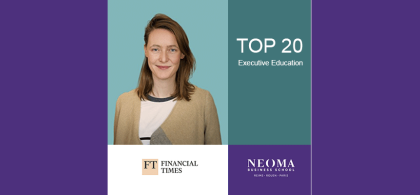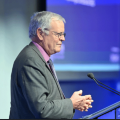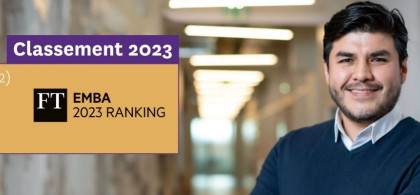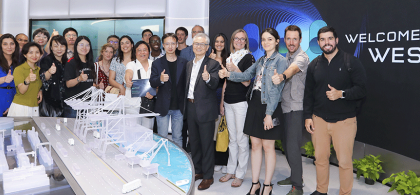
Executive education

Pascal Boniface, Director of The French Institute for International and Strategic Affairs (IRIS)
On 4 April, the IRIS and NEOMA organised “Geoeconomic and Geopolitical Discussions” on the Paris campus. It was an opportunity for the expert to share his vision of the state of the world. Here are the three major ideas to take away from his talk.
Remove emotion from decision-making
In 1783, when Catherine II annexed Crimea, it was a local issue and no one else was interested. In 2014, when Vladimir Putin did the same thing, the impact was completely different. Today, everything that occurs beyond our borders has an impact on us. This of course is the effect of globalisation. Geopolitics is everywhere. It must be part of our education as citizens as well as company directors, NGO managers, association managers, etc. Their analyses must be guided by reason and not emotion. Otherwise, that will result in poor decisions.
Realpolitik has often been criticised, but as Hubert Védrine, the former minister of foreign affairs, said: If we do not talk about real facts, we will be reminded of them all the same. If we want to change the world, we need to start with the world as it is.
It’s the piling up of hubris that led us to catastrophe
Hubris, the disproportionate feeling of pride, has led us to poorly analyse situations. After the Cold War, the West thought that the world would become westernised. We confused westernisation and globalisation. Various forms of resistance have risen up and they have come back to haunt us. In Ukraine, Putin thought that he would be welcomed with open arms and that NATO wouldn’t react. He collided with Ukrainian resistance and western solidarity. Just like Russia, Ukraine refused to implement the Minsk Accords, signed in 2015, then set unrealistic war objectives (recapture all the territories lost since 2022, as well as those annexed in 2014, have Putin put on trial at the international criminal court and have Russia pay for war damages). This piling up of hubris ended in catastrophe, which puts pressure on all of us, places stress on energy concerns, food issues, etc. The error is in applying short-term thinking.
The West can no longer impose its will on the rest of the world
The world is marked by three major clashes. The West and the Russia are at odds with one another. We have returned to the same level of communication as we had in the 1950s. China and the U.S. are heading towards an upcoming faceoff. U.S. thinks it champions universal values and cannot tolerate the advances that China is making. The third clash exists between the western world and the global south. The West is no longer the centre of the world, and we cannot impose our will on it. China is now the main partner for a lot of countries. It’s by starting with these facts that we can change things.






